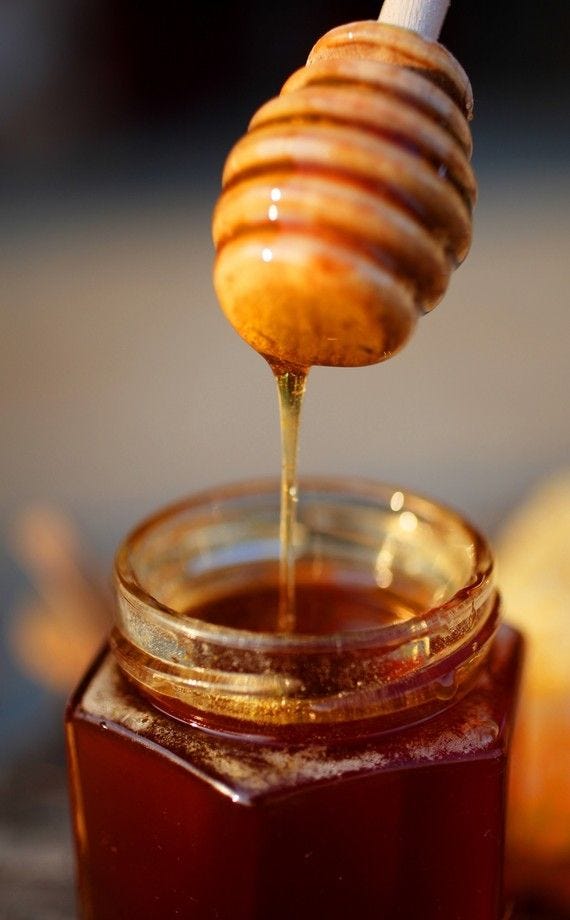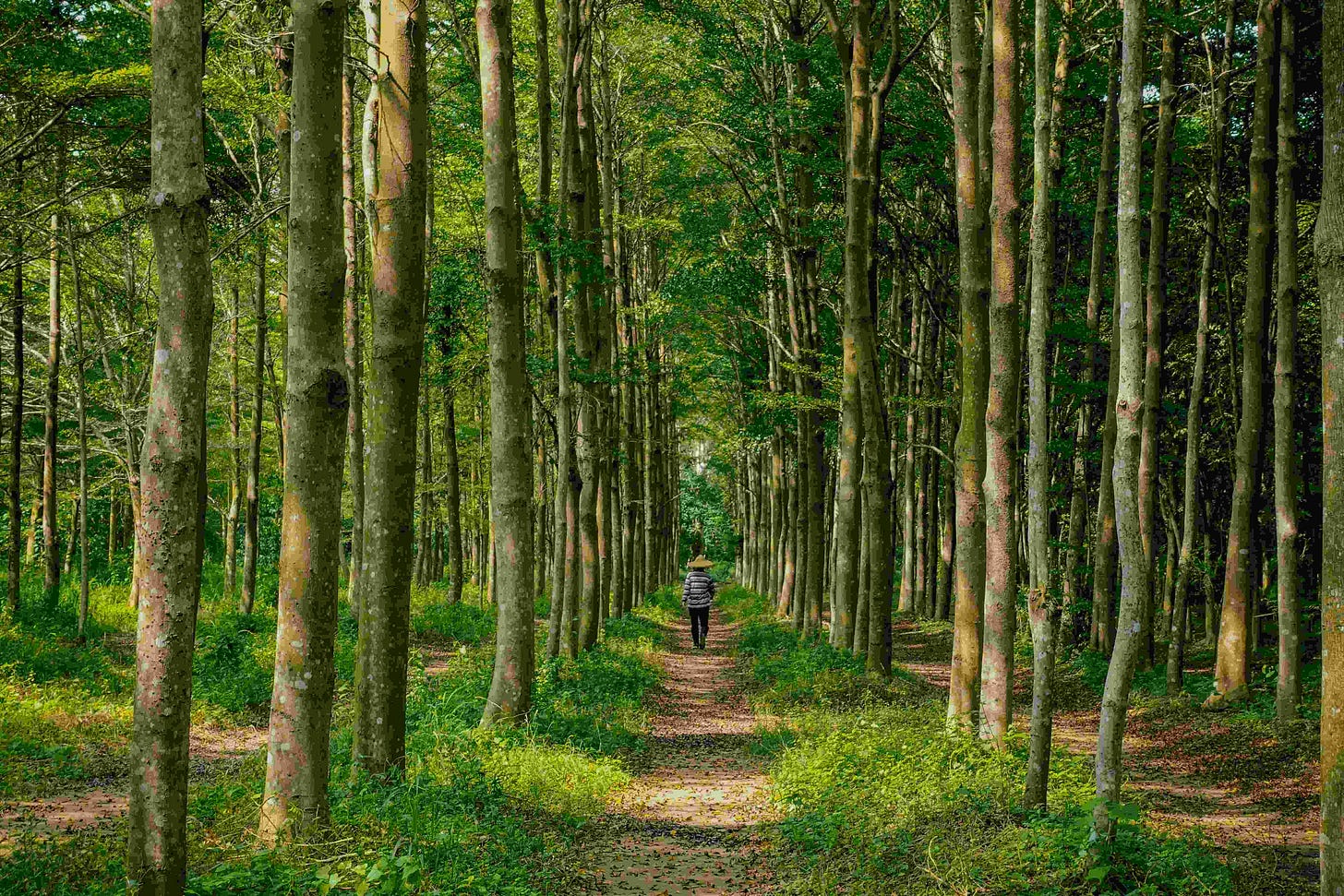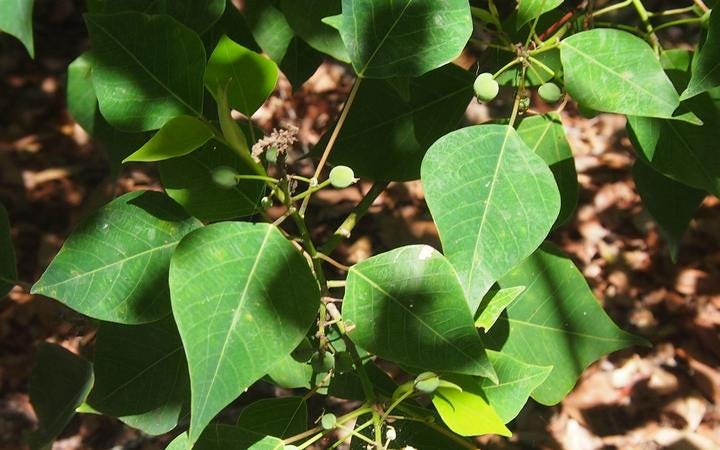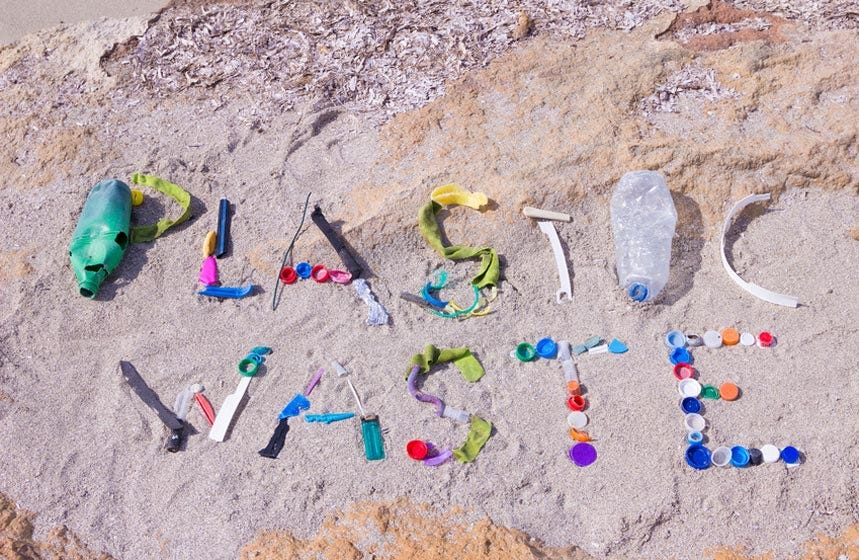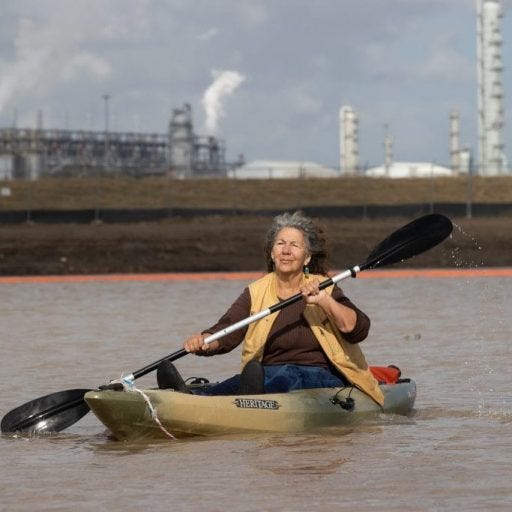Newsletter 33
Keep your thoughts positive because your thoughts become your words. Keep your words positive because your words become your behavior...
Keep your behavior positive because your behavior becomes your habits. Keep your habits positive because your habits become your values. Keep your values positive because your values become your destiny.
~Mahatma Gandhi
Hello Friends!
I have always been a big believer in the power of positive thinking, and the positive effects that way of thinking has had and continues to have on my life. It impacts my actions, inspiring me to make choices that benefit the health of my home, my community and the planet…and this newsletter.
Welcome all new subscribers and a big thank you to all paid subscribers! I love the stories in this issue from the informative news about Honey, and organizations that are doing great work to better the planet from protecting Indigenous Peoples knowledge, to Defenders of the Planet, a Plastic Pollution Treaty & Petition that needs our support, Environmental Winners, and an update about the film that was chosen as the #1 Nature Documentary out of 100. Onwards!
#1 Honey Info
-beware of fake honey-
The main buyers of honey produced in the world are the United States and Europe.
Did you know that nearly half the honey imported into Europe is 'fake' and that the US imports 197,000 tons of honey a year, of which almost half are from China and Turkey, where fake honey has been pinpointed as mainly coming from.
In March 2023, the European Commission revealed a massive honey fraud. According to the sampling and monitoring work conducted by Brussels, almost half of the honey from non-European countries is blended with sugar syrups made from rice, wheat or sugar beet. Of the 320 batches of honey tested by the Joint Research Centre, the Commission's official laboratory, 147 were found to be fraudulent. That is 46% of the samples analyzed. This represents a significant proportion of the honey consumed in Europe. With 175,000 metric tons of honey imported per year (or about 40% of consumption), Europe is the second largest importer of honey in the world after the United States.
Many consumers may be buying counterfeit honey labeled as authentic.
The European Commission's Directorate General for Health and Food Safety coordinated this large-scale control operation within the European Union, in collaboration with 16 European countries, as well as Norway, Switzerland and the European Anti-Fraud Office. Samples were taken at borders – mainly at European ports – between November 2021 and February 2022. Investigators further uncovered the use of additives and colorings to falsify the true botanical source of the honey and disguise the true geographic origin of the honey by falsifying traceability information and removing pollens.
While the risk for human health is considered low, such practices defraud consumers and put honest producers in jeopardy as they face unfair competition from operators who can slash prices thanks to illicit, cheap ingredients.
The global honey market has grown from 1.5m tons produced annually in 2007 to more than 1.9m in 2019, and is worth about $7billion. But over the same period, according to the Mexico-based Honey Authenticity Project wholesale honey prices fell in the US from $3,500 a ton to $2,500 brought down by low prices of Asian honey of around $1,750 a ton, which accounts for a third of honey exports worldwide.
What can we do as consumers? Buy locally made honey from professional beekeepers, make your own honey or buy my favorite honey from my store here. Not only do I trust this company and have researched their business, but the jars the honey comes in are very reusable (labels come off easily too).
(I receive a commission from sales in my store on Amazon)
#2 Client Earth
-defenders of the planet-
Have you heard about Client Earth? They use the law to protect the air we breathe, and the forests, oceans and vulnerable habitats all of us depend on and to bring about systemic change that protects the earth for – and with – its inhabitants.
They come up with practical solutions to the world’s toughest environmental challenges, and work with people, campaigners, governments and industry to make those solutions a reality. They change the system from within, working with, instead of against, its most powerful players. They give people, partners and organizations the tools they need to do the same. They enforce existing laws to protect the world's biodiversity; shape new laws that promote sustainable practices and protect the rights of Indigenous Peoples and local communities
The last 12 months have seen great progress being made to protect nature:
-Indigenous Peoples being formally recognized as stewards of their land at the latest Biodiversity COP talks in December 2022.
-A new UN High Seas Treaty protecting the world's oceans that lie outside national boundaries.
-The EU agreeing to create a law that will block products linked to deforestation from being sold on the EU market.
Support the work of Client Earth here
Client Earth book available in my store on amazon:
(I receive a commission from each sale)
#3 Heritable Innovation Trust aka Heritable Knowledge Trust
-protecting Indigenous Peoples knowledge-
I hadn’t heard of the Heritable Innovation Trust until I took a Medicinal Plant course at Cornell last year. I was so moved by the work of H.I.T. and relieved that someone was doing something to right the many wrongs perpetuated on Indigenous Peoples all around the world.
The Art of Healing: Australian Indigenous Bush medicine
Let me share the story of the mamala tree of the Samoan community.
For generations, the Samoans have used the mamala tree to heal viral diseases (Hepatitis, HIV/AIDS). In 1990, an American ethnobotanist visited the community. The Samoan healers shared the tree’s properties with the ethnobotanist, who then brought the information to the cancer institutes in the USA. In turn, derivatives of the the organic compound were patented and the Samoans were excluded from using and producing their heritable knowledge, and remain uncompensated and unrecognized.
Basically, they were no longer allowed to use the tree’s healing properties for themselves as the tree (in the middle of their town) had been patented and was off limits.
The mamalan tree
One of the more vexing difficulties facing indigenous peoples around the world is how to protect their distinctive communal knowledge from being exploited by multinational corporations and other outsiders. This local knowledge can take many forms, from ethnobotanical knowledge about the healing properties of plants and substances, to a peoples ancestral songs, designs and artworks, and sacred knowledge whose access and use is meant to be restricted to designated individuals.
The Heritable Knowledge Trust is a model for protecting indigenous knowledge and for saving that knowledge, so as to make it accessible to people to learn from. It’s a repository of community information, which has been passed down through generations. H.I.T. also created a contract of engagement:
“If you learn of an experience, any part of that knowledge you have learned, you are bound under the contract to share your knowledge with the community that shared with you. If you choose to move forward with any economic engagement, you will move forward in partnership with the people who shared that information, and should any benefit be derived whether economic, knowledge, industrial or other, you have a responsibility to share those benefits with those who sourced the information first.”
Heritable knowledge is communal, traditional-based knowledge that has been utilized for generations with a deliberate intent, not for personal gain. When a community agrees to enter into the trust, all involved parties agree to engage with each other in transparency and partnership.
The trust was created so that the entire community can benefit from the heritable knowledge that has been passed down informally by the ancestors of their communities
“The Heritable Innovation Trust Program was created after the 2008 “Heritable Knowledge Framework and the Development of Communal Innovation Trusts”document written by Dr. David Martin. From the newest soil erupting from Tavurvur in Papua New Guinea, to the Ecuadorian Amazon, to the oldest and largest known empire on Earth in Mongolia, the Heritable Innovation Trust is quickly diversifying and growing.
Watch the video about the Heritable Innovation Trust
More about Heritable Innovation Trust here
Read a much longer piece about work the H.I.T. is doing:
Another Interesting read
#4 Plastic Pollution Treaty
The U.N. is Negotiating a Treaty that Could Solve the Plastic Problem. Here's What You Need to Know.
175 countries are currently negotiating a legally-binding, international treaty on plastic pollution that could change the world. It's a big deal.
But at the same time, the question remains whether this treaty will be strong enough, or if certain countries or companies will derail the progress that could be achieved.
Some countries and companies say they want an ambitious treaty, but when you actually look into the details, they aren’t pushing for meaningful solutions.
For example, the US wants the “legally-binding” part of the treaty to be that each nation has a plan of action. But, that’s like letting students choose their own homework and grade it too.
Meanwhile, chemical and plastics corporations are actively lobbying for weaker treaty terms. At first, they were opposed to plastic regulations. But that hurt their reputation and their bottom line. So now, they're playing along, making sustainability claims and trying to weaken solutions from the inside. They keep pushing for weaker, flexible treaty terms that focus on waste management instead of reducing plastic at the source.
We can’t expect the companies that created the problem to help solve it. And we can’t let this treaty leave room for industry greenwashing and lack of real progress.
We know the plastics problem is major. We’re up against something bigger than any one individual or organization or legislator or business leader can take on alone.
So we’re teaming up with allies and organizations around the world to demand a strong treaty that ambitiously tackles plastic pollution. We’ll be delivering this petition to world leaders and delegates before the next round of negotiations at INC-2 (Intergovernmental Negotiating Committee) in late May and early June.
We need governments worldwide to step up to this historic opportunity by listening to the people. This is going to be a heavy lift. Big Oil and Big Plastic won’t go quietly. But we’re ready to rally, alongside friends from around the globe. Are you?
No matter how you’re tackling the plastics problem, we need you.
To: World leaders, delegates and representatives at INC-2
From: [Your Name]
As global citizens from around the world, we are calling on you to pass a strong international treaty on plastic pollution.
We need a treaty that:
Is legally binding and has deadlines to cap and reduce plastic production, accelerating the transition away from single-use plastics and towards reuse and refill.
Prioritizes the health, livelihoods and expertise of frontline workers and communities across the plastics' life cycle.
Rejects false solutions like waste incineration, chemical “recycling”, waste-to-energy, international dumping and other industry-supported, greenwashing efforts to continue business-as-usual plastic production.
Include provisions that hold polluting corporations and plastic producing countries accountable.
Please protect the health of our people and our planet. The citizens of the earth demand it.
Join me in Signing this Petition
Thank you!
#5 Environmental Winners!
-Meet the 2023 Goldman Environmental Prize Winners-
Each year, the Goldman Environmental Prize is awarded to grassroots environmental champions from around the world and honors ordinary people who take extraordinary actions to protect the planet.
Alessandra Korap Munduruku
Eco warriors who triumphed in David and Goliath battles with mining and petrochemical giants were among those honored by a prestigious environmental award recently.
The Goldman environmental prize – dubbed the ‘Green Nobel prize’ – is given to grassroots activists who go above and beyond to protect the planet.
Diane Wilson
This year’s winners were: Alessandra Korap Munduruku, who saved Indigenous Amazon land from mining; Chilekwa Mumba, who sued the owners of a polluting Zambian copper mine; Delima Silalahi, who reclaimed swathes of Indonesia from a paper company; Zafer Kizilkaya, who expanded Turkey’s marine protected areas; Tero Mustonen, who pioneered peatland restoration in Finland; and US fisherwoman Diane Wilson who “lost it all” taking on ocean polluters (and winning).
Wilson revealed how she had been dismissed as a “hysterical woman” when she began her fight, which, she said, cost friends, her marriage and her job. “The funny thing is how you can lose it all, but you gain your soul,” she said.
#6 Honeyland in the News
Have you seen the 2019 movie Honeyland? It was just chosen as the #1 Nature documentary of all time by Rotten Tomatoes!
Honeyland is the story of a woman who utilizes ancient beekeeping traditions to cultivate honey in the mountains of North Macedonia. When a neighboring family tries to do the same, it becomes a source of tension as they disregard her wisdom and advice.
Honeyland is available to watch on HBOmax and AppleTV
**Spoiler alert for those of you who haven’t seen the film:
A couple of years after the film came out, the producer and two directors of Honeyland returned to the setting of their documentary in North Macedonia, and something had fundamentally changed. Ms. Muratova’s dark and cramped home no longer felt lived in. Using prize money won by the film, the filmmakers had found her a new house in Dorfulija, and she now divides her time between the two villages. This speaks to the wider ethical conundrum that documentary filmmakers grapple with. Should they ever help their subjects? And as humans, how could they ever not? Now the filmmakers find themselves unable to leave entirely, serving as mediators in local tensions to which they once bore witness, from issues with the well to finding a lost house key, fixing a chimney and providing a new truck to Mr. Sam (the other character featured in the film).
Even with her newfound fame, Ms. Muratova said she still remained true to her vocation. “Even if I’m in the film,” she said, “I’m still going to take care of my bees.”
May all the April into May showers bring you many flowers!
If you wish to browse my new store on Amazon, here is the link , or check my latest posts on Instagram or follow what’s happening at my climate resilient River’s Edge Farm, click here and visit my own online store, where you can also subscribe to this newsletters or share it.
See you soon again!
Priscilla




